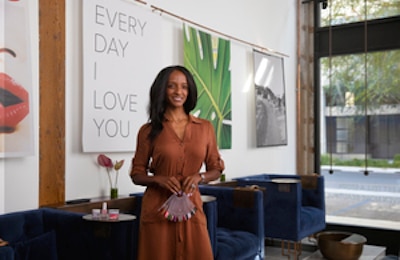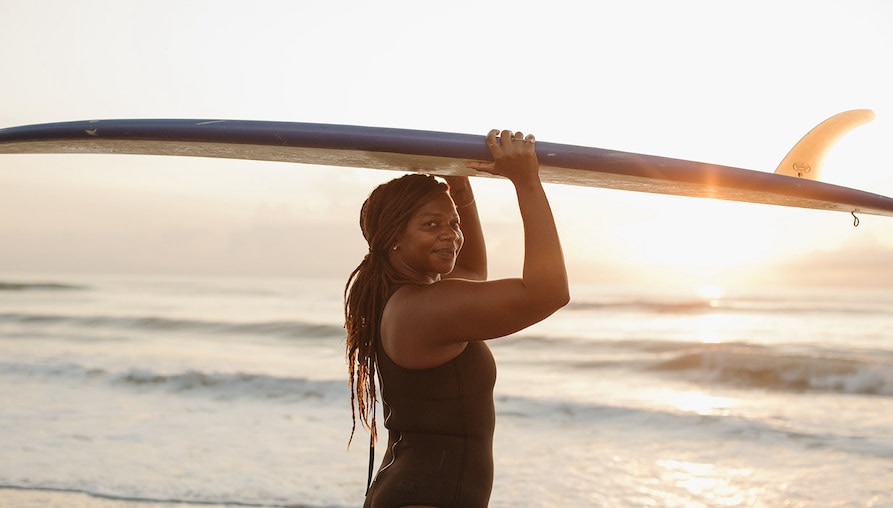Like many aspiring entrepreneurs, Ashley worked a regular 9-5 while she got Trade Street Jam up and running. She had a dream, and she was going to achieve it. Today, Trade Street Jam brings in anywhere from $15,000 to $50,000 a month selling low-sugar, clean-label jams, cocktail mixes, hot sauces, and more. Ashley is proud of her business success—but admits the road wasn’t always smooth.
“We once invested in a quarterly production run—it was about $100,000,” she says. “Things went wrong and we had to throw the whole production away. We lost a lot of money.” But she didn’t let that financial mistake discourage her from taking risks. “The gutsiest decision we made was ordering $50,000 worth of raw materials from overseas,” she says. “It was so scary, but it paid off when COVID hit and supply chains went crazy—we had what we needed!” For Ashely, running a successful business means trusting your gut.
Looking ahead, Ashley plans to grow her team and, eventually, sell her business for $100 million. “You heard it here first!” she says.
It’s time for ‘the talk’
Did this article answer the question, “How much money does it take to start a business?” No. But did it convince you that it’s possible to start a business with almost any amount of money? We hope so!
There’s no definitive playbook when it comes to starting a business (except this one, but we’re biased). Whether you start a business with no money or invest your entire savings account into your big idea, sharing your financial lessons, wins, and losses might just be the inspiration that another entrepreneur needs to go forth and prosper. And a rising tide lifts all boats—three in four Black business owners believe successful Black businesses are critical for a thriving community.
So go ahead, have the talk. Talk about how much money you had (or didn’t have!) when you started your business. Talk about how much money you lost on a bad decision, and how much money you made when things went right. When we remove the taboo surrounding the money talk, we open the door to honest, inspiring, and transparent conversations.
Check out more money transparency stories on TikTok or head over to our YouTube channel to see more inspiring stories from Black business owners.












